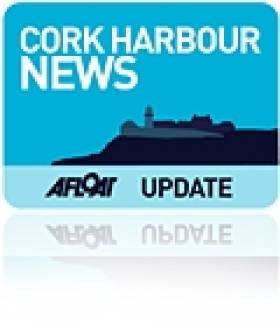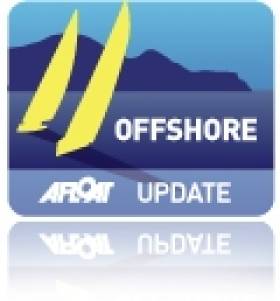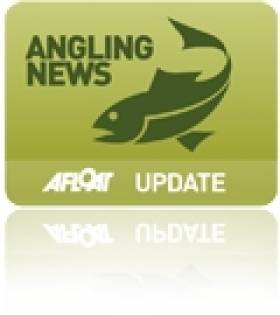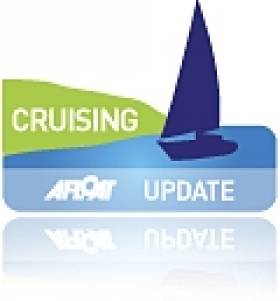Displaying items by tag: Internet
#Subsea - The Irish Times has more details on the new transatlantic subsea internet cable Hibernia Express, work on which got underway this past March.
Clearance and pre-laying work continued this month in the Celtic Sea to prepare for the arrival of the 4,600km fibre optic cable in Cork Harbour in the coming weeks.
Once connected to the new Cork Internet Exchange (CIX), it will be the first modern telecommunications cable of its kind to link North America and Europe in well over a decade.
And its speed and capacity – offering the lowest latency between New York and London – will be a boon for businesses that depend on the fastest possible and most robust data connections.
Combined with the shorter Ireland-France Subsea Cable, it's also set to make Cork a leading global internet switching centre, eliminating the need for Ireland's internet traffic to go through the UK before the rest of the world, as TechCentral reports.
How To Stay Connected On Your Boat Offshore
#Offshore - Mobile connectivity is better than ever, but can still be a challenge offshore, with cellular reception on most networks limited to a few miles off the coast at best.
Any further than that, and expensive satellite set-ups are your only real solution. But if you're not planning to take your yacht or cruiser too far from the shore, Yachting World lists some of its picks out of a wealth of options to choose from.
At the cheapest and easiest end are MiFi routers that act as a wireless hotspot for your boat, connecting to the internet over available mobile phone networks.
For a bit more, you could invest in a powered Wi-Fi booster antenna to connect with land-based networks at a longer range. And then there's Wi-Fi + Cellular, which gets you the best of both worlds – internet and phone calls – at speeds you're used to from home.
Yachting World has much more on the story HERE.
NI Anglers Take to Facebook to Save Their Salmon
#ANGLING - Northern Ireland river anglers are taking a novel approach to lobbying Stormont over salmon exploitation by harnessing the power of social networking.
According to the News Letter, the NoSalmonNets campaigners "have swapped their fishing rods for laptop computers", using Facebook to attract support for their campaign to bring an end to the offshore netting of wild salmon stocks.
As previously reported on Afloat.ie, Northern Ireland's Department of Culture, Arts and Leisure (DCAL) has called for a voluntary ban on offshore salmon fishing, following new research that shows a significant drop in their numbers in the North's rivers.
Seamus Donnelly of NoSalmonNets has welcomed DCAL's recent decision to stop issusing licences for commercial salmon nets that may "contravene European law" off Antrim's north coast, made in an effort to protect salmon stocks in the Foyle river system.
Donnelly explained that the campaign was borne from frustration at the apparent inaction by the NI Executive over the protection of salmon.
“One of the keys to our success has to be Facebook," he said. "The internet has an unlimited reach and we took advantage of that.”
The News Letter has more on the story HERE.
Cruising Association's MedNet Goes Global
The Cruising Association has just launched a new internet and email based net, which lets members cruising various regions of the world arrange meets, ask questions and receive answers about ever-changing local facilities and regulations.
It all started in 2000 as Mednet, a service for some 85 members cruising yachts and motorboats in the Mediterranean. MedNet 1 allowed one-to-one email communication but soon members wanted more, especially the ability to see the answers to other members' questions.
So MedNet 2 was born in Spring 2001, providing wider access to conversations. By Autumn 2003 MedNet 2 had moved to Yahoo Groups, but as membership increased mail traffic became too heavy for slow and expensive internet connections on boats. As a consequence MedNetLite was introduced for those with low bandwidth connections. By now 250 users were exchanging news about lay-up sites, marinas, restaurants, anchorages, provisioning, boatyards, itineraries and regulatory changes. But a good long-term record of all this data was missing.
So MedNet 3 was introduced in 2006, working as an email based forum within MyCA, the Cruising Association members-only intranet. There were still shortcomings. The system was passive, collecting e-mails and displaying them online. Inputs were only by email. By now, users had grown to 350, 10% of the Cruising Association's membership. Members cruising in other regions began asking for their own networks.
The time had come to upgrade so Version 4 was developed by a group of Cruising Association members with IT skills. This has just been launched for four regions; Mediterranean, Baltic, European Inland Waterways and 'Blue Water'. Members can join as many as they wish. They post and respond online, or by email. They can receive full or lite email messages or opt for no email, just tuning in online when they have Internet access. A full record of all these discussions is maintained online, making it easy to research topics and keep the Cruising Association's many members-only publications right up-to-date.
On MedNet recent discussions have included:
• The need for grey water holding tanks in Turkey
• The cheapest way of making cash withdrawals
• Marina costs in western Italy
• Recommendations for a rigger in Preveza
• How to watch British TV in the Med
• Places for winter storage ashore
It will be interesting to see the sorts of topics that the wider use of MedNet technology brings!
































































